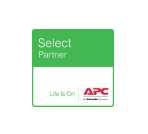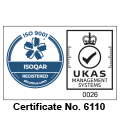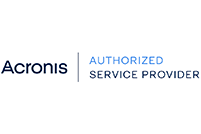The widespread adoption of technology among businesses has had a profound impact on practically every industry. Such developments have caused the rapid alteration of how companies do business. and due to growing competition, firms are under more pressure than ever to deliver high-quality goods and services more quickly for less money. This has resulted in supply chain enterprises looking for new solutions that allow them to optimise their operations while retaining their competitive edge.
That’s where robotic process automation (RPA) comes in. Here, we look closer at this constantly-developing technology.
What is RPA?
RPA is an emerging technology that involves the use of bots to mimic human actions in order to complete repetitive tasks. Recognised by many industry experts as the next step in automation, the technology is revolutionising process efficiency and productivity. It is increasingly being used among manufacturing, transportation and logistics businesses with the aim of increasing efficiency and reducing costs.
How does it work?
The technology uses machine learning to imitate the actions of users, which means it learns on the job to mimic how tasks are carried out by humans, then automates it. RPA allows robots to manage the execution of routine and often laborious tasks to allow employees to advance more value-added capabilities.
One such process that is considered to be time-consuming and repetitive is manually entering data from transactional orders - including invoices or records of orders. Any backlog in this task can cause inefficiencies throughout the supply chain, which means it is ideal for automation.
What are the benefits?
Automating mundane processes can have a number of positive outcomes for businesses, especially relating to workflow and bottom line. Other benefits of RPA include:
- Business insight: An enhanced understanding of customer behaviour is essential for building long-term relationships, and allows distributors to provide value-added services and products that are tailored to buyer needs. RPA allows companies to collect and analyse enormous datasets, thus allowing decisionmakers to pinpoint patterns and trends that enable strategic planning and forecasting.
- Securing scalability: All supply chains experience quieter periods, and while seasonal employees can help when there is high demand, recruitment can be expensive. This means that scaling the workforce for shifting demands is a significant challenge for many businesses. However, RPA can scale up to handle the increased workload, while maintaining high-quality output without the need for more staff.
- Eliminating bottlenecks: A high number of repetitive tasks is likely a drain on employee attention, leaving minimal time for them to complete duties that will generate revenue. In addition, routine tasks can be susceptible to human error, which can have a considerable impact on a business’s bottom line. RPA gives supply chains the chance to gain the greatest possible ROI by adopting more physical roles and automating labour-intensive tasks with the utmost precision.
Why is it so great?
RPA is a great option for many businesses, each with its own unique set of requirements. Some of the key drawing points include:
- Flexibility: RPA can be programmed to complete almost any repetitive task. When assigning out work, employees are often notified as to the work they need to carry out - for instance, via email or system notification, and RPA is also capable of doing this.
- Ease of implementation: RPA can be set up easily, simply by setting up a macro by recording your actions.
- Integration is simple: RPA bots do not need to be integrated with most software. Screen scraping and existing integrations mean that RPAs can input and evaluate the output of almost all Windows applications.
What are the different ways to use RPA?
There are three ways to utilise RPA tools, which are:
Attended RPA - whereby bots are invoked by the user. This option is often utilised in customer-facing functions
Unattended RPA - bots that perform tasks in batches, based on automatic/timed triggers
Hybrid RPA - a combination of the above
Contact us
Talk to Evaris about ways you can harness technology to achieve real business advantage by calling 0330 124 1245, or email [email protected].







